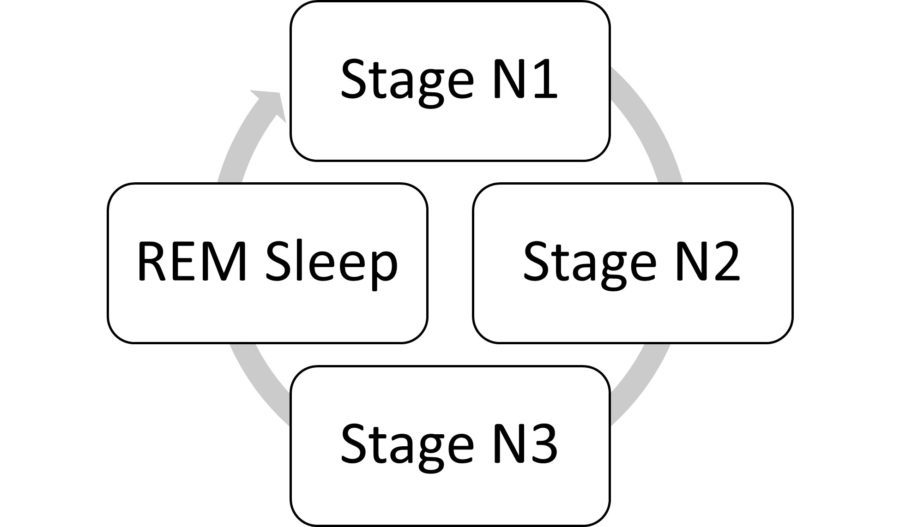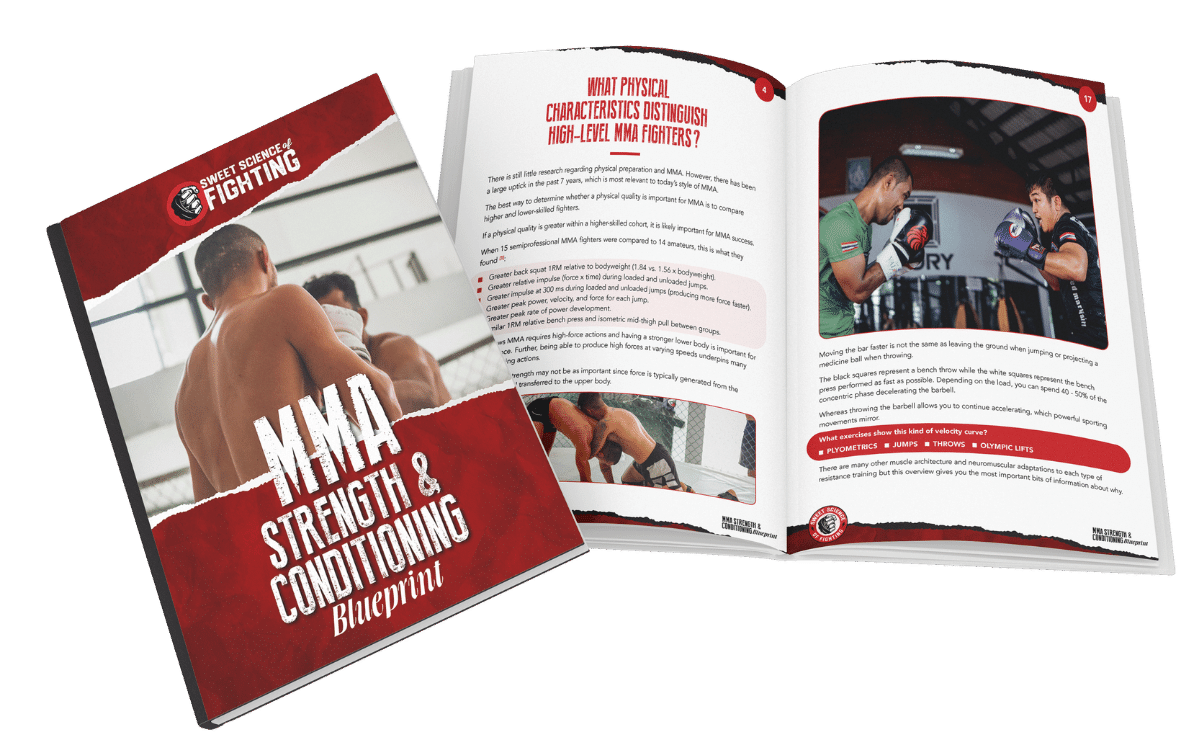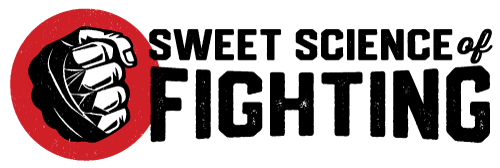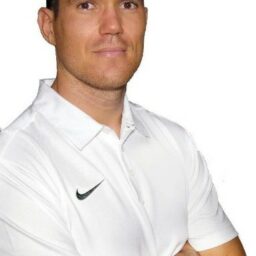Everyone evolved with sports training (mainly coaches and athletes) recognize the importance of training and nutrition as essential in a high-performance sports environment. However, one factor is constantly underestimated: the recovery process.
A triad composed of three factors: training, nutrition, and adequate recovery is essential for sporting success. It is time to be aware of the importance of sleep in the recovery process for the fighters.
An Overview Of Sleep For Fighters
Among the possibilities of recovery strategies, sleep can be a crucial factor in restoring the body from the central and peripheral fatigue inherent in physical training.
Sleep is defined as a reversible behavioral state in which the individual has relative immobility and an increased threshold of response to external stimuli [1].
Sleep has two primary physiological parameters: REM sleep rapid eye and NREM sleep non-rapid eye movement. NREM sleep is divided into three stages:

A sleep cycle typically is about 90-120 minutes, with 4-6 cycles per night.
Impact Of Poor Sleep Habits On Fight Performance
Lack of sleep can expose combat athletes to detrimental effects regarding physical performance and immune function, cognitive capacity, and psychomotor performance.
Thus, it is observed that sleep restriction can expose athletes to detrimental effects on combat sports performance. Souissi et al. [2] investigated that partial sleep deprivation at the beginning or end of the night can influence the peak performance of judokas before and after the competition.

How to Dominate Every Fight with Raw, Explosive Power No One Can Match
Discover the underground blueprint that has quietly turned MMA hopefuls into legends, using nothing but sheer, brute force and bulletproof conditioning techniques.
Regarding sleep variables in professional Mixed Martial Arts (MMA) athletes, Peacock et al. [3] showed that high sleep latency was associated with lower values of physical measures (cardiorespiratory fitness, recovery of heart rate, the height of vertical jump).
In contrast, athletes who showed consistency in their sleep routine obtained better performance test results during the fight camp period.
Endocrine aspects are also changed when there is nocturnal sleep debt. In a study published by Leproult & Van Cauter [4] (2011), 5 hours of sleep per night for a week decreased testosterone levels in men by 10% to 15%, with this decrease associated with a low sense of well-being, mood, and physical vigor.
Sleep restriction also influences the immune system, as shown by Cohen et al. [5], where participants who had a total sleep time of fewer than 7 hours were 2.94 times more likely to develop a cold when compared to participants who slept 8 hours or more a night.
What Causes Sleep Restriction In Fighters
Combat sports athletes still have some specific demands that change factors for a good sleep routine:
Strategies For Sleep Optimization in Combat Sports athletes
Napping can benefit combat athletes, especially those who wake up early to start their training routine [9]. Another good strategy is creating sleep habits like going to bed at the same time each night and getting up at the same time each morning (including on the weekends).
Keeping the bedroom like a "cave" (quiet, dark, relaxing, and at a comfortable temperature); and removing electronic devices before sleep and avoiding large meals, caffeine, and alcohol before bedtime.
You can use other strategies to improve sleep patterns in combat athletes. For example, bright light therapy appears to have helped delay or advance the sleep/wake cycles in athletes [10]. The modulation of sleep/wake cycles improved the athletes' reaction times, a crucial attribute for elite level fighters.
The use of artificial light emitting might be a valuable procedure for athletes who are competing in different time zones or at unusual times and need to adjust their sleep/wake cycles to conform to the competition timetables.
Because circadian rhythms have a direct influence on the body and affect such variables as muscle strength, flexibility, sensorimotor coupling, and perceptual and cognitive functions.
For instance, I recommend the Re-Timer light therapy glasses because they are portable light therapy that regulates the body clock. The light suppresses the body's melatonin production, enabling us to change the time we feel tired and therefore change our sleep. This leads to increased energy levels and better sleep habits and quality by regulating the production of the hormone melatonin and optimizing the circadian rhythm.
Considering these factors, modifying the sleep/wake cycle (phase delay or advance) by using bright light therapy and manipulating when the exposure time occurs can optimize athletes' performance. This happens through modulating core temperature and the secretion of melatonin, which promotes higher levels of alertness in the athletes. Especially if the competition happens when physiologically it is time to sleep [10].
For example, to minimize the effects of the jet lag when Rodrigo Nascimento fought at UFC Fight Night in Abu-Dhabi, we had to synchronize his biological clock (from Florida to Las Vegas - USA) to a new time zone.
In addition, the fight happened at a local time (Abu-Dhabi) when the athlete would be physiologically sleeping. So, the acclimatization starts two weeks before the flight. The athlete is exposed to specific wavelengths of light for a prescribed period (30 to 50 minutes) at a specific time of day.
So, despite the importance of sleep for athletes, the analysis and monitoring (I recommend the Instruments Condor) should be done with a device. Actimetry is a non-invasive method that analyzes the sleep/wake rhythm for long periods, from days to months.
However, this data about sleep in fighters have still been neglected. Thus, sharing this information about the need to establish a consistent sleep routine and specific interventions can ensure that athletes have optimized physical and cognitive functions throughout the training/competition process, which is essential for sports success.
References
[1] Carskadon, Mary A, & Dement, William C. (2005). Normal human sleep: an overview. Principles and practice of sleep medicine, 4, 13-23.
[2] Souissi, Nizar, Chtourou, Hamdi, Aloui, Asma, Hammouda, Omar, Dogui, Mohamed, Chaouachi, Anis, & Chamari, Karim. (2013). Effects of time-of-day and partial sleep deprivation on short-term maximal performances of judo competitors. The Journal of Strength & Conditioning Research, 27(9), 2473-2480.
[3] Peacock, C. A., Mena, M., Sanders, G. J., Silver, T. A., Kalman, D., & Antonio, J. (2018). Sleep Data, Physical Performance, and Injuries in Preparation for Professional Mixed Martial Arts. Sports (Basel, Switzerland), 7(1), 1.
[4] Leproult, Rachel, & Van Cauter, Eve. (2011). Effect of 1 week of sleep restriction on testosterone levels in young healthy men. Jama, 305(21), 2173-2174.
[5] Cohen, Sheldon, Doyle, William J, Alper, Cuneyt M, Janicki-Deverts, Denise, & Turner, Ronald B. (2009). Sleep habits and susceptibility to the common cold. Archives of internal medicine, 169(1), 62-67.
[6] Romyn, Georgia, Robey, Elisa, Dimmock, James A, Halson, Shona L, & Peeling, Peter. (2016). Sleep, anxiety and electronic device use by athletes in the training and competition environments. European journal of sport science, 16(3), 301-308.
[7]Chellappa, Sarah Laxhmi, Steiner, Roland, Blattner, Peter, Oelhafen, Peter, Götz, Thomas, & Cajochen, Christian. (2011). Non-visual effects of light on melatonin, alertness and cognitive performance: can blue-enriched light keep us alert? PloS one, 6(1), e16429.
[8] Bleyer, Fernanda Tolentino de Souza, Barbosa, Diego Grasel, Andrade, Rubian Diego, Teixeira, Clarissa Stefani, & Felden, Érico Pereira Gomes. (2015). Sleep and musculoskeletal complaints among elite athletes of Santa Catarina. Revista Dor, 16(2), 102-108.
[9]Postolache, Teodor T, & Oren, Dan A. (2005). Circadian phase shifting, alerting, and antidepressant effects of bright light treatment. Clinics in sports medicine, 24(2), 381-413.
[10] Rosa, J., Silva, A., Rodrigues, D. F., Simim, M. A., Narciso, F. V., Tufik, S., Bichara, J. J., Pereira, S., Da Silva, S. C., & de Mello, M. T. (2018). Effect of bright light therapy on delayed sleep/wake cycle and reaction time of athletes participating in the Rio 2016 Olympic Games. Chronobiology international, 35(8), 1095–1103.

